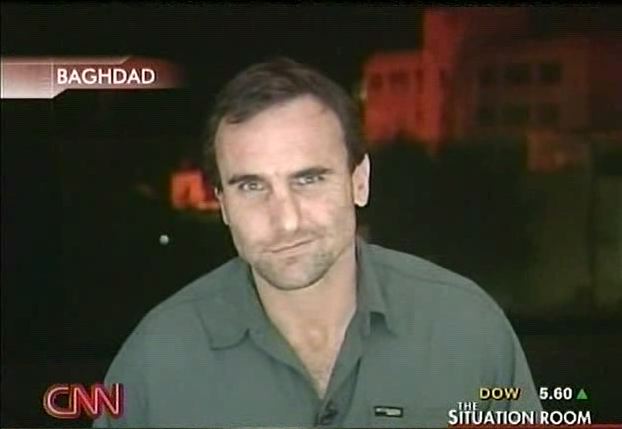TSR: "We're on your side... just empower us."

Click photo to play
Length: 4:05
WOLF BLITZER: Does the United States have a secret weapon against Al Qaeda In Iraq? Our Michael Ware explains in this extraordinary report from Baghdad.
(BEGIN VIDEO TAPE)
MICHAEL WARE, CNN CORRESPONDENT (voice-over): He looks like an insurgent. He's actually a U.S. ally -- the new face of America's fight against al Qaeda.
"Al Qaeda slaughtered our sheikhs, our children," he says, "and we will terminate them."
By "we," he means men like these in Iraq's western Anbar Province, manning this checkpoint which, though unofficial, is supported by the U.S. military.
The men, drawn from tribes or their umbrella network, the Anbar Salvation Council. Police vehicles pass through without question, for the tribes have split their forces. Some to the police, who intone tribal chants before operations, while others are kept as private paramilitaries, hit squads, assault teams, sanctioned by the Iraqi government, their loyalty remaining with their tribal sheikhs, all of which suits an America desperate to crush al Qaeda.
(END VIDEO TAPE)
BLITZER: And joining us now in Baghdad, Michael Ware. Michael, there have been also some reports involving the motivation of these guys, that there may be some money exchanging hands.
What do you know about this?
WARE: Well, look, what everything is always about, by and large, in this part of the war is money and power. It's all very localized. It's local politics. These guys want a stranglehold back on their own domain, on their turf. But this has much broader ramifications than just Iraq's western Anbar Province, because these guys represent what America's Arab allies like Saudi Arabia, Jordan, Egypt, so desperately want to see: Sunni Iraqi Arabs re-empowered, instead of seeing a government that they see America has put together that is much closer to Teheran than it is to Washington or Amman or Riyadh.
BLITZER: I've heard, Michael, that some of the money, maybe a lot of the money, if not all of it, is coming from Saudi Arabia.
What are you hearing?
WARE: Well, certainly there's lots of Saudi interests here, not only in Iraq, but particularly in these western provinces. We're certainly hearing that there are very discrete channels open. Narrowing down the facts is extraordinarily difficult.
But what we do understand is that for now, there's a very low level, very covert, very indirect form of support for many of these Sunni communities, particularly the tribal systems, from elements within Saudi Arabia. And we believe, from what we're told, that the U.S. for now is simply turning a blind eye.
BLITZER: It is possible these guys are potentially going to turn against the United States almost as quickly as they turned against al Qaeda?
WARE: Oh, absolutely. In fact, they warn of that in our exclusive interviews with their leadership. They say that, you know, "we're working on interests that align with the U.S. for now. But at the end of the day, once we've slaughtered al Qaeda, if you're still here, then we're going to turn our weapons back on you."
But underlying all of that is something much broader -- there will be no need for them to turn their weapons back on America, they say. Since 2003 they've said, "we're on your side. We're against Iran. We're against al Qaeda. Just empower us."
But the ideologues from Washington said the tribes and the Baathists had no place in the new democratic Iraq. Well, there's no democratic Iraq, yet the tribes and the Baathists still remain -- Wolf.
BLITZER: Michael Ware reporting for us from Baghdad, doing excellent reporting, as usual.
Michael, thanks.
WARE: Thank you, Wolf.
